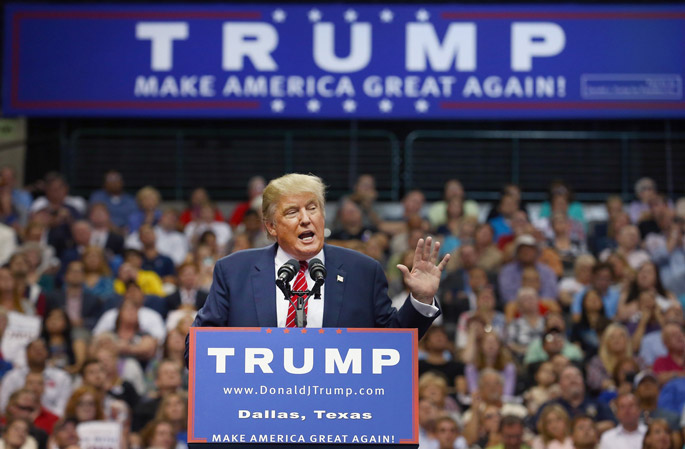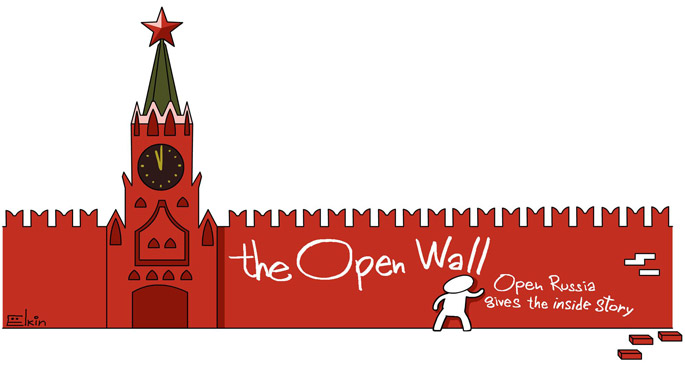Which election are we talking about?
Which election are we talking about?
Ilya Klishin
The Americans are voting for a new president; the Russians are voting for a new Duma. But it doesn’t sound like that.

You’re queueing for a coffee in a chain café; it’s the usual morning scene – crowded with professionals, picking up latte to go, and breakfast granola. Someone in front of you says, “No, Rubio’s definitely got no chance.” You mentally agree.
You get into the office, and there’s more politics; the latest Trump speech is being regurgitated by the water cooler – as a joke, it would seem, or perhaps not; it’s hard to tell. Later, after work, you drop in on a networking event – and the debate’s already raging: Hillary or Bernie; Kasich doesn’t stand a chance; would the Republican establishment really try to block Trump at the RNC (Republican National Convention)? You could be anywhere in the US – New York, Chicago, LA …
But you’re not in the US; you’re in Moscow; yes, the Russian capital’s going crazy over the upcoming American presidential election. Everyone’s long since decided which candidate they’d be voting for; and no one seems particularly bothered by the rather irritating little fact that they’re citizens of another country – that these politicians have absolutely nothing to do with them. It makes no sense.
What is more, all this Russian talk about US politics seems especially absurd in light of the fact that Russia itself will be holding elections this year. Not just any old elections – parliamentary Duma elections, no less. Last time around, in 2011, the Duma elections brought people out on to the streets, protesting about “Fair Elections.” In 2016, there’s now less than six months to go before voting, and yet nobody seems much bothered.
It’s been a long time since Russia has witnessed such heated debates around taxation and education – especially taxation and education in the US. Russians have rarely followed politics across the pond with such earnestness, and sheer passion – even in Soviet times.
For some reason, Moscow’s thrusting professionals – indistinguishable from their counterparts in Berlin, London or Boston – aren’t arguing themselves hoarse about Zyuganov, still valiantly leading the Communist Party, or Baronova (standing for a Moscow district as an Open Russia candidate) – but they’d be able to explain to you at the drop of a hat why Sanders is superior to Clinton. You have to ask yourself, why?
Partly, it’s to do with fashion; holding forth about the elderly successors of the Soviet Communist Party – who juggle patriotic trips to church with expressions of love for Stalin – is deeply unfashionable. Partly, it’s to do with something that is less easy to define – call it fear, an instinct for self-preservation, annoyance – that makes talking in public about the opposition (or the party in power), something you think twice about.
Most of all, it’s because there’s no “politics” in Russia; and what does go by that name is a pale imitation of the real thing. Which means we have to ride someone else’s wave. Or even imagine that we’re living in another country – not so difficult, come to think of it, if you happen to be in the centre of Moscow. So what we have here is a psychological surrogate, and there’s nothing absurd or insane about it.
Russia has spawned a generation that expects politics and politicians to lay on a show for them. And if that show isn’t forthcoming from homegrown producers, they’ll just watch a foreign-made one; just as they’d watch HBO instead of NTV.
Of course, American politics wasn’t created for the entertainment of Russia’s millennials. And it’s unlikely that Sanders, Clinton or Trump spend any time reflecting on Russians’ potential reactions to this pronouncement or that (although we do know that Trump is a Putin supporter …). But that’s the way things have panned out: in far-off Russia, people are delighting in somebody else’s election spectacle, taking heated sides, quarrelling with friends, trying desperately to forget that they live in a country where elections don’t mean a thing. Depressing, yes.
And yet; and yet, this isn’t some urban millennial caprice – latte politics. Russians want real politics. The younger generation has developed a taste for debates, the polls, elections; politics in general. This can only be encouraging: after all, everything begins with demand. Today, we get by on what the US has to offer; tomorrow, we’ll need some of the homegrown variety. Call it import substitution, just not the type that the Kremlin is hoping for.




